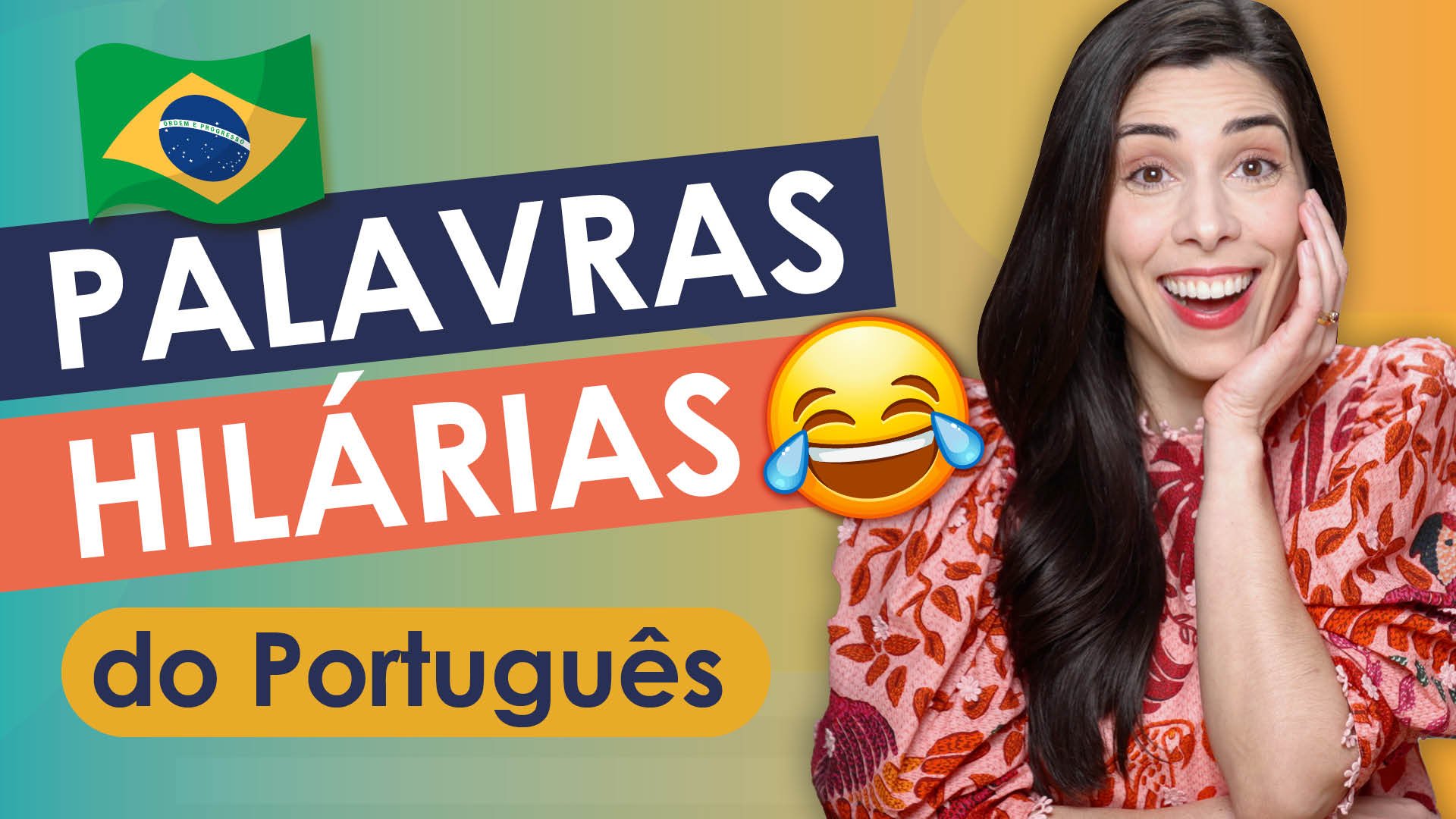Join the Speaking Brazilian YouTube Club to have access to the transcript of this video and many other videos.
Today you will learn to use the words TÃO, TANTO, QUÃO, and QUANTO.
Depending on the context, we use these terms to make comparisons, intensify ideas, or quantify things.
PART 1
Let’s start by talking about how to use these terms to make equality comparisons.
To make comparisons, we use the expressions “tão… quanto” and “tanto… quanto.“
TÃO + ADJECTIVE + QUANTO
The words “tão…quanto” are used with adjectives.
For example:
- Maria é tão alta quanto Pedro. (Maria is as tall as Pedro.)
- Ele está tão atrasado quanto você. (He is as late as you.)
Note that the word “tão” is invariable, and the adjective should agree with the first term.
Maria é tão alta… (Maria is as tall…)
Ele está tão atrasado.… (He is as late…)
TANTO + NOUN + QUANTO
The words “tanto… quanto” are used with nouns.
For example:
- Pedro bebeu tantas cervejas quanto Paulo. (Pedro drank as many beers as Paulo.)
- Maria leu tantos livros quanto seu irmão. (Maria read as many books as her brother.)
Note that the word “tanto” varies in gender (masculine and feminine) and number (singular and plural) according to the noun to which it refers.
tantas cervejasas (many beers)
tantos livros (as many books)
VERB + TANTO QUANTO
The words “tanto quanto” together (invariable expression) are used with verbs. In this case, the verb should come before.
For example:
- Ana estuda tanto quanto Carol. (Ana studies as much as Carol.)
- Ele trabalha tanto quanto ela. (He works as much as her.)
QUANTO OR COMO?
An important observation: in every case mentioned before, the word “quanto” can be substituted by “como.”
For example:
- Maria é tão alta quanto Pedro. (Maria is as tall as Pedro.)
- Maria é tão alta como Pedro. (Maria is as tall as Pedro.)
- Maria leu tantos livros quanto seu irmão. (Maria read as many books as her brother.)
- Maria leu tantos livros como seu irmão. (Maria read as many books as her brother.)
- Ana estuda tanto quanto Carol. (Ana studies as much as Carol.)
- Ana estuda tanto como Carol. (Ana studies as much as Carol.)
PART 2
Now, let’s look at the use of “tão” and “tanto” as modifiers of other words.
TÃO + ADJETIVE / TÃO + ADVERB
We use the word “tão” to intensify an adjective or adverb.
For example:
- Ele é tão talentoso! (He is so talented!)
- Nossa, você canta tão bem! (Wow, you sing really well!)
TANTO + NOUN
We use the word “tanto” to intensify a noun.
For example:
- Ele não gosta de tanto açúcar no café. (He doesn’t like that much sugar in his coffee.)
- Tinha tantas pessoas na festa! (There were so many people at the party!)
Note that the word “tanto” varies in gender and number when used with nouns:
tanto açúcar (much sugar)
tantas pessoas (many people)
VERB + TANTO
To intensify a verb, we also use the word “tanto.” In this case, the verb comes before.
For example:
- Joaquim estuda tanto! (Joaquim studies a lot!)
- Eles gostam tanto de viajar de trem! (They really like to travel by train!)
Note that the word “tanto” is invariable when it refers to verbs.
PART 3
QUÃO OR QUANTO?
These two words express the same meaning when we want to intensify another term in a sentence. However, the term “quão” sounds much more formal than “quanto.”
Let’s look at how to say the same sentence using one word or the other.
- Você não imagina quão importante é a sua amizade para mim. (You can’t imagine how important your friendship is to me.)
- Você não imagina o quanto a sua amizade é importante para mim. (You can’t imagine how important your friendship is to me.)
Note that the word “quão” is used before the adjectives or adverbs. The word “quanto” is used with nouns, pronouns, verbs, and other terms.
In this context, we put the article “o” before the word “quanto,” but we usually don’t use the article before the word “quão.”
Let’s see some more examples:
- Você não sabe quão irritada eu fico com isso. (You don’t know how irritated I am with this.)
- Você não sabe o quanto isso me irrita. (You don’t know how much this irritates me.)
- Ele não sabe quão difícil é aprender essas regras. (He doesn’t know how difficult it is to learn these rules.)
- Ele não sabe o quanto é difícil aprender essas regras. (He doesn’t know how difficult it is to learn these rules.)
Notice that in the last example, I only changed one word’s position:
- quão difícil é (how difficult it is)
- o quanto é difícil (how difficult it is)
Both sentences have exactly the same meaning and are correct.
Remember that the word “quão” is less often used and sounds more formal. The word “quanto” is much more common.
QUÃO, QUANTO OU COMO?
In some cases, we can also use the word “como” in place of “quão” or “quanto,” usually in more informal language. There is no rule for when we use the word “como.” It depends on the natural use of the language.
Now let’s look at how to say the same sentence in three different ways:
- Você viu quão felizes as crianças ficaram? (Did you see how happy the children were?)
- Você viu o quanto as crianças ficaram felizes? (Did you see how happy the children were?)
- Você viu como as crianças ficaram felizes? (Did you see how happy the children were?)
One more example:
- Não tinha ideia de quão quente era esta cidade. (I had no idea how hot this city was.)
- Não tinha ideia do quanto esta cidade era quente. (I had no idea how hot this city was.)
- Não tinha ideia de como esta cidade era quente. (I had no idea how hot this city was.)
That’s it, everybody!
You’ll find more Portuguese lessons at the bottom of the page.
Até a próxima!
Speaking Brazilian Team


